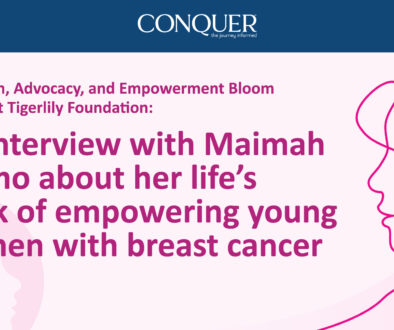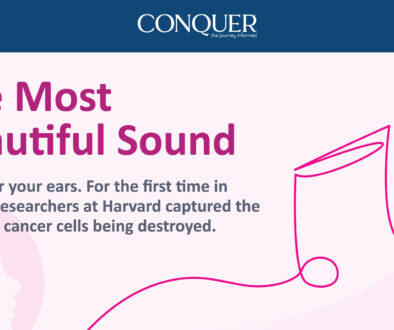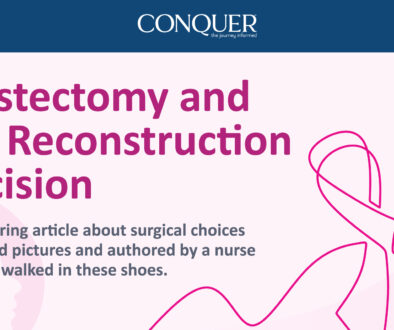Different Diagnoses, A Common Need for Information and Care
Bridging the Gap Between Early-Stagers and Metastatic Breast Cancer
All those diagnosed with any type or stage of breast cancer share similar goals; they want to live and have a great life. Some, such as those diagnosed with mBC, live with chronic disease; and most diagnosed with any type or stage live with some uncertainty about risk and recurrence as well as the need for some treatment and/or maintenance. As Jamil notes, “It’s not like you’re going to be done after you have your initial treatment. You’re in this for the long haul, no matter your stage.”
Based on the most recent CDC data, female breast cancer occurs at the highest rate of any cancer in the United States. In 2017, 250,520 new cases of female breast cancer were reported. Of these, 42,000 women died, giving female breast cancer the second highest rate of cancer deaths in the U.S.. Per 100,000 women, ~126 white women were diagnosed with breast cancer and ~19 died (15%); and ~121 Black women were diagnosed with breast cancer and ~27 died (22%). In the years 2013-2017, the death rate for white women with breast cancer was 19.8 per 100,000 and for Black women, 27.6 per 100,000 (National Cancer Institute).
Research suggests that of those initially diagnosed with breast cancer, approximately 30% will develop mBC. Though the medical community makes necessary distinctions among type and stage, some within the breast cancer community argue that a stage does not necessarily represent health status. As Jamil notes of having mBC, “I don’t consider myself different from any other early stager” because those in early stages can have or develop mBC and right now, “I’m metastatic but I have no solid tumors. I’m focused on keeping it at bay.” And like some early stagers, Jamil considers herself a survivor. “I’m taking it day by day. If you’re an early stager, you’re also taking it day by day. You’re on your maintenance treatment, but you could have a recurrence or become metastatic. So I don’t believe that there’s any difference.”
All those touched by breast cancer, whatever the type or stage, can benefit from learning about mBC, and in several different ways.
First, with more information about mBC, you are better able to take care of your health in the short and long term. Those diagnosed with breast cancer can take whatever steps necessary to receive the best possible care, improve quality of life, and extend life. If as an early stager, you learn about mBC, Jamil says, you can know that you can “get treated for that and you can survive.”
Second, with more knowledge about mBC, as well as all types and stages of breast cancer, you are better able to connect, include, and support others. When Nunny was first diagnosed and spoke with other women with mBC, she learned that it “was good to talk about it.” And when Sheila went to a symposium with “other people like me” who had different types and stages, she was comforted by a community who welcomed and included her. “They accepted me as a breast cancer survivor and that was so important to me.” They did not “alienate me because I was stage IV, and I encourage people not to alienate anyone from any stage because we’re all in this together.”
Third, the more you know, the better equipped you are to advocate for your own care as well as for others. Cancer centers and providers should offer all those diagnosed with breast cancer education as a standard part of the process in the beginning and end of every phase of treatment. This would include an explanation of contingencies, options, and instructions for what to monitor and do over time; as well as how to address questions related to all aspects of health and living, such as what kind of bra to wear, how to approach dating, or how to communicate with family and friends.
Cancer centers and providers should also offer those with any type or stage of breast cancer access to comprehensive, integrated care, such as nurse and resource navigators; but this does not occur consistently or equitably. With adequate information about options, people are best positioned to advocate for themselves and others.
When Jamil was not initially provided with a resource navigator, she sought the support of advocacy organizations and “took advantage of every support that was out there.” She found support with nutrition, counseling, and more, which “made me knowledgeable about what to anticipate and how to sustain myself.” As a result, she was able to structure her life, take care of her children, and thrive at work while receiving treatment. As she notes, “This helped me have a better quality of life and better outcome.” And though she is grateful for the support of these organizations, this would not be necessary if providers offered comprehensive support equally to everyone.
This article is a part of the #MyLifeIsMyLegacy Campaign. Learn more here.



